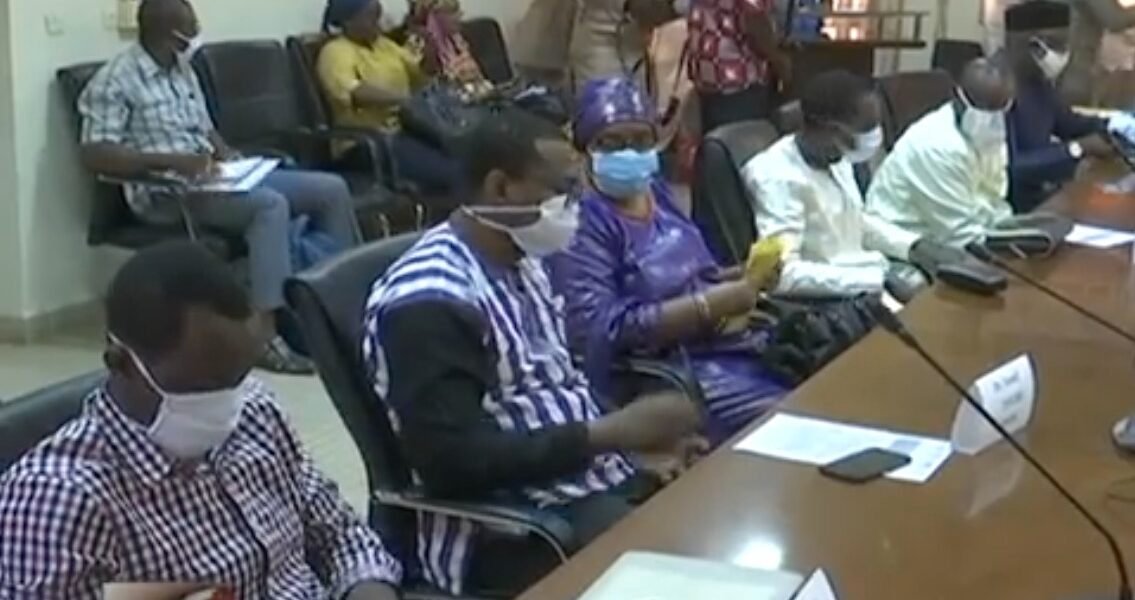Blog
Lancement de notre programme de recherche action Esclavage et Migration Forcée au Mali (juin 2020) (French only)
La journée de lancement de notre programme de recherche action EMiFo sur le journal bamanankan de l’ORTM, bravo à tous les participants ! #malisansesclaves Voir la vidéo ici. Le quotidien malien L’Essor couvre le lancement de notre programme de recherche action.
Article in The Conversation: Mali fails to face up to the persistence of slavery (February 2021)
The internal African slave trade was officially abolished in colonial Mali in 1905. But a form of slavery – called “descent-based slavery” – continues today. This is when “slave status” is ascribed to a person, based on their ancestors having allegedly been enslaved by elite slave-owning families. The practice is most prevalent among Mali’s nomadic Tuareg and Fulani communities in Central and Northern Mali, but
Call for papers for a special issue entitled: “The new/old stories of slavery in Africa: stories of slavery in Africa”
DEADLINE: 15 MARCH 2021 The Nigerian Journal ‘The Republic’ invites scholars to submit papers for their special issue on ‘Modern Slavery in Africa’” Deadline for proposals: 15th of March 2021. Within the framework of the Sustainable Development Goals and the socio-economic and political realities such as those presented by the global Covid-19 pandemic, how do we creatively respond to the challenges of modern slavery?
Briefing about the Point-sud workshop ‘Around Gambana’ (1 December 2020)
On December 1st 2020, Lotte Pelckmans, CO-investigator in the SLAFMIG project, organized, together with anthropologist Paolo Gaibazzi, a full day workshop on the anti-slavery movement Gambana. The title of the workshop was Around Gambana: perspectives on an anti-slavery movement, and it was a mixed format with both onlline zoom participation, but also some offline participation from presenters physically meeting at
Traning for paralegals (November 2020)
A key stage of the “Slavery and Forced Migration” project, namely the training workshop for 28 paralegals from the regions of Kayes, Nioro and Kita, was successfully concluded in the last week of November 2020 in Bamako. The Laboratoire d’études et de recherches en droit, décentralisation et développement local (LERDDL) of the Faculty of Public Law (FDPU) of Bamako in
First quantitative survey among displaced populations fleeing violence resulting from conflicts over descent-based slavery (October 2020)
From 5 to 22 October 2020, the EmiFo project carried out a joint quantitative survey between the project partners among the displaced populations of the rural commune of Souransan Tomoto, 226 km from Bamako. This is the very first quantitative survey conducted among these populations who have fled the violence of slavery since January 2019. This survey should provide a
Blogpost on descent-based slavery in the Sahel – Leah Durst-Lee (February 2021)
Descent-based slavery, also described as hereditary or caste-based slavery, is practiced in the Sahel region, including Mauritania, Niger, Mali, Senegal, Burkina Faso, Northern Benin, Ghana, Nigeria, Cote d’Ivoire, Chad and Sudan. This form of slavery is defined by Anti-Slavery International as when an individual is “born into slavery because their ancestors were captured into slavery and their families have ‘belonged’
Article: Breaking the Silence? The ongoing legacies of Internal African Slavery in Mali – Lotte Pelckmans (August 2020)
Co-investigator on the EMiFo project Lotte Pelckmans wrote an article for the Bonn Research Group on Slavery and Studies on the legacy of internal African slavery. “To that end, I investigated the use of slavery-related vocabularies in court cases. In this piece, I explain and discuss how it is possible that more than a century after the formal abolition of
Web documentary “Bouillagui, a free village – Marie Rodet (October 2020)
Bouillagui: A Free Village is a webdoc on the history of resistance against slavery in the Kayes region in Mali. It is available in open access in both French and English version (and in Bambara and Soninke in the videos). You can choose the language by clicking on FR or EN in the top right-hand corner. See the movie of














Recent Comments